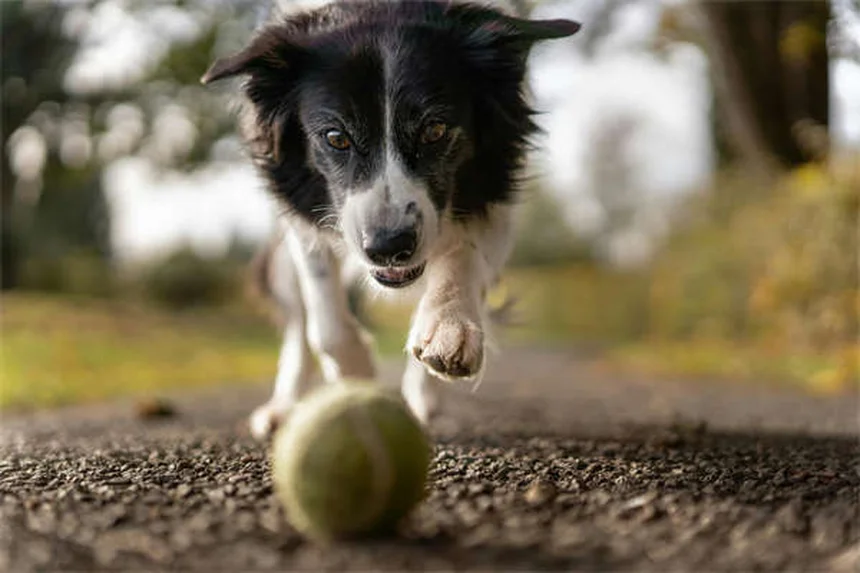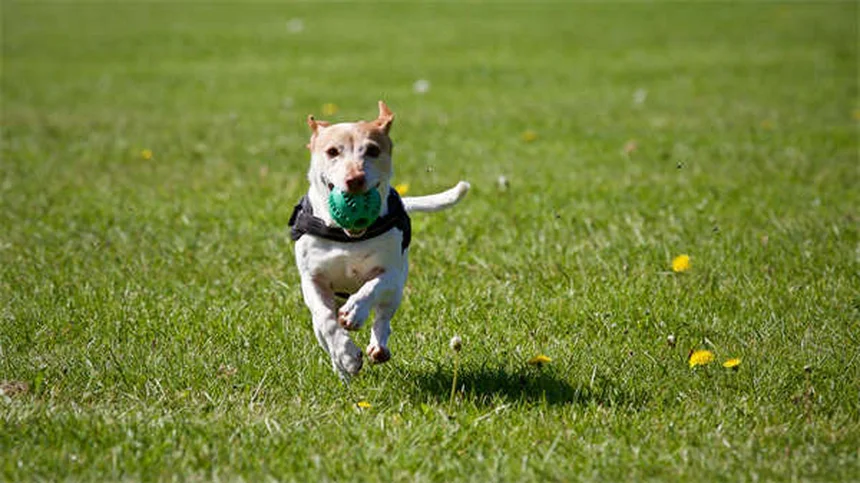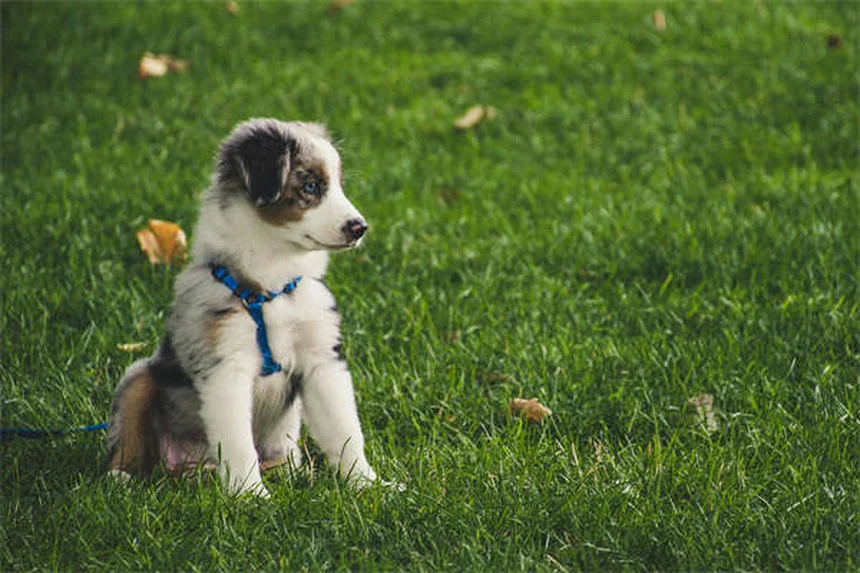Advertisement
Is your dog struggling to poop? The answer is: Dog constipation is super common but totally treatable! I've seen countless pups in my practice who can't seem to go, and let me tell you - it's as uncomfortable for them as it is worrying for you. The good news? Most cases clear up quickly with simple solutions like adding pumpkin to their diet or increasing water intake. But here's what you really need to know: while occasional constipation happens, if your dog hasn't pooped in 2-3 days or shows other symptoms like vomiting, it's time to call the vet ASAP. In this guide, I'll walk you through everything from spotting the signs to vet-approved home remedies that actually work. Let's get your furry friend back to regular business!
E.g. :Should Dogs Be Allowed on Couches? The Ultimate Guide for Pet Owners
Advertisement
- 1、Is Your Pup Struggling to Poop? Let's Talk Dog Constipation
- 2、When Should You Panic? Emergency Signs
- 3、What Happens at the Vet's Office?
- 4、Fixing the Problem: Treatment Options
- 5、Keeping Your Dog Regular
- 6、Your Burning Questions Answered
- 7、The Hidden Dangers of Chronic Constipation
- 8、Beyond the Basics: Lesser-Known Causes
- 9、Creative Solutions From Real Dog Owners
- 10、The Fiber Factor: What Most Owners Get Wrong
- 11、When to Consider Specialized Help
- 12、Your Dog's Gut Health Affects Everything
- 13、FAQs
Is Your Pup Struggling to Poop? Let's Talk Dog Constipation
What Exactly Is Dog Constipation?
Picture this: your furry friend keeps squatting but nothing's coming out. That's dog constipation in a nutshell - when your pup has trouble passing stool or does it less often than usual. It's like when you eat too much cheese and then... well, you know.
Here's what's happening inside: the colon absorbs too much water from the poop, making it dry and hard. Your poor dog still feels the need to go but can't do much about it. They might pass small, rock-hard pieces or nothing at all. And trust me, it's as uncomfortable for them as it sounds!
Why Does This Happen to Dogs?
Let me break down the common culprits behind this messy situation:
| Common Causes | Serious Causes |
|---|---|
| Not drinking enough water | Intestinal blockage |
| Low-fiber diet | Spinal problems |
| Swallowed toys/objects | Prostate issues |
| Certain medications | Megacolon |
Did you know that anesthesia can cause temporary constipation? That's why vets often recommend a bland diet after surgery. And speaking of vets...
When Should You Panic? Emergency Signs
 Photos provided by pixabay
Photos provided by pixabay
Normal Constipation vs. Red Flags
Most cases aren't emergencies. If your dog's just straining but otherwise acting normal, you can wait a day to see if things improve. But here's when you should drop everything and call the vet:
- No poop for 2-3 days
- Vomiting
- Not eating or drinking
- Acting lethargic
- Showing signs of pain
Pro tip: Keep track of your dog's normal poop schedule. Some dogs go 3 times daily, others every other day. Knowing what's normal for your pup helps spot problems early.
Why Timing Matters
Ever heard the saying "the longer you wait, the worse it gets"? That's especially true with constipation. The stool keeps drying out, making it harder to pass. In severe cases, this can lead to megacolon - where the colon stretches out and loses its ability to push stool through.
What Happens at the Vet's Office?
The Detective Work Begins
Your vet will play detective, asking about your dog's poop history (yes, you'll need to talk about poop in detail). They'll want to know:
- When was the last bowel movement?
- What did the stool look like?
- Any changes in diet or routine?
- Could they have eaten something weird?
Then comes the physical exam - feeling your dog's belly, checking their temperature, and maybe doing a rectal exam. Don't worry, it's quick and your dog won't hold a grudge!
 Photos provided by pixabay
Photos provided by pixabay
Normal Constipation vs. Red Flags
Sometimes the vet needs more information. They might recommend:
X-rays: Like a poop treasure map, showing where everything's stuck
Fecal tests: Checking for sneaky parasites
Blood work: Ruling out diseases like hypothyroidism
Did you know some dogs get constipated because arthritis makes it painful to squat? That's why vets might check joints too.
Fixing the Problem: Treatment Options
Simple Solutions First
Many cases just need some TLC:
- Add water: Try flavoring it with low-sodium broth
- Pumpkin power: A spoonful of canned pumpkin (not pie filling!) adds fiber
- Probiotics: These good bacteria help keep things moving
I once had a client whose dog wouldn't drink water until they started using a pet fountain. Sometimes it's that simple!
When More Help Is Needed
For tougher cases, vets might use:
- Enemas (yes, dogs get them too)
- Medications like lactulose (a stool softener)
- IV fluids for dehydration
- In extreme cases, surgery to remove blockages
Fun fact: Some dogs need manual removal - where the vet carefully extracts the stool with a gloved hand. Not glamorous, but it works!
Keeping Your Dog Regular
 Photos provided by pixabay
Photos provided by pixabay
Normal Constipation vs. Red Flags
Want to avoid future poop problems? Try these tips:
1. Always have fresh water available
2. Feed high-quality food with proper fiber
3. Regular exercise keeps things moving
4. Watch what they eat - no socks, toys, or garbage!
5. Routine vet checks catch problems early
Remember: Some dogs need lifelong management with fiber supplements or special diets. Your vet can recommend what's best for your pup.
What About Older Dogs?
Senior pups often need extra help. Arthritis can make squatting difficult, and medications might cause constipation. Talk to your vet about:
- Joint supplements
- Raised food/water bowls
- Softer bedding near the potty area
- More frequent bathroom breaks
I've seen 14-year-old labs start pooping normally again just from adding a ramp to the yard!
Your Burning Questions Answered
How Can I Tell If It's Just Constipation or a Blockage?
Great question! While both cause straining, blockages often come with vomiting, loss of appetite, and abdominal pain. Constipation alone usually doesn't cause vomiting. When in doubt, get it checked out!
Will My Dog's Constipation Go Away on Its Own?
Sometimes, if it's mild. But why make your pup suffer? Simple home remedies often help. And if it doesn't improve in a day or two, vet care can prevent complications.
Here's a joke to lighten the mood: Why did the constipated dog cross the road? To get to the fire hydrant - but he still couldn't go!
Seriously though, constipation is no joke for dogs. With proper care and prevention, you can keep your furry friend's digestive system running smoothly. After all, a happy dog is a regular dog!
The Hidden Dangers of Chronic Constipation
Long-Term Effects You Might Not Know About
You wouldn't ignore your own constipation for weeks, right? Well, the same goes for your pup! Chronic constipation can lead to some nasty complications that'll make you wish you'd acted sooner.
When stool sits in the colon too long, it can cause toxic buildup in your dog's system. Think of it like leaving trash in your kitchen - eventually, it starts affecting the whole house. Your dog might lose their appetite, become lethargic, or even develop infections. That's why catching constipation early is so important!
The Emotional Toll on Your Pup
Ever notice how grumpy you get when you're backed up? Dogs feel that too! Chronic constipation can lead to:
- Irritability (more growling or snapping)
- Anxiety around potty time
- Loss of interest in play
- Changes in sleep patterns
I once worked with a golden retriever who started hiding every time his owner brought out the leash because he associated walks with painful pooping. It took months to rebuild his confidence after we fixed his digestive issues.
Beyond the Basics: Lesser-Known Causes
Stress - The Silent Poop Killer
You know how some people get stomachaches when they're nervous? Dogs experience the same thing! Common stressors include:
- Moving to a new home
- A new pet or baby in the house
- Loud noises (thunderstorms, fireworks)
- Changes in routine
Fun fact: Some dogs get so stressed at boarding facilities that they literally "hold it in" for days. That's why many kennels now use calming pheromones and quiet zones.
Medication Side Effects You Should Know
Many common dog meds can slow down digestion. Here's a quick cheat sheet:
| Medication Type | Constipation Risk | What You Can Do |
|---|---|---|
| Pain relievers | High | Ask about stool softeners |
| Antihistamines | Medium | Increase water intake |
| Antacids | Low-Medium | Add probiotics |
| Diuretics | High | Electrolyte supplements |
Always ask your vet about potential side effects when starting new medications. A simple adjustment in diet or supplements can often prevent problems before they start!
Creative Solutions From Real Dog Owners
Hydration Hacks That Actually Work
Getting enough water is crucial, but what if your dog just isn't interested? Here are some clever tricks I've collected from clients:
- Ice cube games: Freeze low-sodium broth into cubes for a fun, hydrating treat
- Water fountain: Many dogs prefer running water (it's instinctual!)
- Wet food mix-ins: Adding a tablespoon of water to kibble boosts hydration
- Multiple stations: Place water bowls in different rooms
One client even taught her poodle to "order" water by nudging a bell near her bowl - and it worked! The dog started drinking 50% more water just because it became a game.
Exercise Ideas for Different Abilities
Movement gets things moving, but not all dogs can handle long walks. Here's how to adapt:
For senior dogs:
- Short, frequent potty walks
- Gentle massage (circular motions on the belly)
- Hydrotherapy for arthritic pups
For small breeds:
- Indoor fetch down hallways
- Food puzzle games that encourage movement
- "Sniff walks" where they set the pace
For recovering dogs:
- Assisted standing exercises
- Passive range-of-motion movements
- Very short walks with lots of breaks
Remember - even five minutes of gentle movement can make a difference! I've seen bedridden dogs improve with just three daily sessions of assisted standing and belly rubs.
The Fiber Factor: What Most Owners Get Wrong
Not All Fiber Is Created Equal
You might think "more fiber = better," but it's not that simple. Dogs need the right kind of fiber for their specific needs:
Soluble fiber (like pumpkin): Absorbs water to soften stool
Insoluble fiber (like wheat bran): Adds bulk to stimulate movement
Fermentable fiber (like beet pulp): Feeds good gut bacteria
Too much of the wrong type can actually make constipation worse! That's why some dogs get more backed up when owners overdo the bran or give too many veggies.
How to Find Your Dog's Fiber Sweet Spot
Finding the perfect fiber balance takes some detective work. Start with these steps:
1. Check your dog food's fiber content (should be 2-4% for most dogs)
2. Introduce new fiber sources gradually
3. Keep a poop diary (seriously!) to track changes
4. Watch for signs of too much fiber (excessive gas, loose stool)
5. Consult your vet if you're unsure
I worked with one border collie who needed three different fiber adjustments throughout the year - more in winter when he was less active, less in summer when he ran constantly. It's all about finding what works for your individual dog!
When to Consider Specialized Help
Working With a Canine Nutritionist
For dogs with chronic issues, a nutritionist can be a game-changer. They can:
- Analyze your dog's complete diet
- Create custom meal plans
- Recommend targeted supplements
- Help transition between foods safely
- Address multiple health issues at once
One of my clients saw dramatic improvements after a nutritionist discovered her dog was deficient in magnesium - a mineral crucial for muscle contractions in the colon. Simple fix, huge results!
The Benefits of Physical Therapy
Did you know some veterinary physical therapists specialize in digestive issues? They use techniques like:
- Therapeutic massage to stimulate digestion
- Targeted exercises to strengthen abdominal muscles
- Electrical stimulation for nerve-related constipation
- Ultrasound therapy to reduce inflammation
A dachshund I know went from weekly enemas to normal bowel movements after just six sessions of abdominal PT. His owner joked it was the best "tummy rubs" money could buy!
Your Dog's Gut Health Affects Everything
The Gut-Brain Connection in Dogs
Here's something fascinating - your dog's digestive health directly impacts their mood and behavior. Research shows that:
- Dogs with healthy gut microbiomes tend to be less anxious
- Proper digestion supports cognitive function in senior dogs
- Gut inflammation can contribute to aggressive behaviors
- Balanced bacteria helps regulate stress hormones
Isn't it amazing how much power lies in those little gut microbes? That's why fixing constipation isn't just about comfort - it could make your dog happier overall!
How Other Health Conditions Play a Role
Many seemingly unrelated issues can contribute to constipation:
Dental problems: If chewing hurts, dogs eat less or swallow food whole
Thyroid issues: Hypothyroidism slows everything down
Neurological conditions: Nerve damage affects muscle contractions
Pelvic injuries: Old fractures can physically narrow the passage
This is why vets often look at the big picture. That "simple" constipation might be a clue to something deeper. As one vet told me, "The gut never lies - it always tells us what's really going on."
E.g. :10 Home Remedies for Dog Constipation - Wedgewood Pharmacy
FAQs
Q: How can I tell if my dog is constipated or has a serious blockage?
A: Here's how I explain it to my clients: Constipation usually means your dog is straining but might pass small, hard stools. With a blockage, you'll often see vomiting, loss of appetite, and obvious pain. I had one patient, a Labrador named Max, who ate a whole sock - he kept straining but couldn't poop and started vomiting. That's when we knew it was more than just constipation. The golden rule? If your gut says something's wrong, trust it and call your vet. Better safe than sorry when it comes to your pup's health!
Q: What home remedies actually work for dog constipation?
A: From my 10 years of practice, these are the most effective home solutions: First, try adding a tablespoon of canned pumpkin (not pie filling!) to their food - the fiber works wonders. Second, make sure they're drinking enough; I recommend adding low-sodium chicken broth to water. Third, gentle belly massages in clockwise motions can help. But here's my pro tip: if these don't work within 24 hours, skip the internet remedies and get professional help. I've seen too many cases where well-meaning owners waited too long trying home fixes.
Q: How long is too long for a dog to be constipated?
A: This is crucial - while every dog's "normal" varies, if it's been 48-72 hours without a bowel movement, it's vet time. I remember a Dachshund patient who hadn't pooped in 4 days because the owner thought "he'll go when he's ready." By then, we had to hospitalize him for dehydration. The colon keeps absorbing water from stuck stool, making the problem worse over time. My rule? One day of straining = try home care. Two days = vet appointment. Three days = emergency visit.
Q: Can certain dog foods cause constipation?
A: Absolutely! Low-quality kibble with fillers or not enough fiber is a common culprit in my practice. I always recommend looking for foods with at least 3-5% fiber content. Some dogs do better on wet food for extra hydration. One of my success stories was a Bulldog who switched to a high-fiber prescription diet and went from weekly constipation to perfect poops. But remember: any diet change should be gradual over 5-7 days to avoid upsetting their stomach further.
Q: Are some dog breeds more prone to constipation?
A: You bet! In my experience, short-legged breeds like Bassets and Dachshunds often struggle because of their body shape. Older dogs and those with arthritis have trouble getting into proper pooping position. And I've noticed many giant breed dogs seem prone to slower digestion. The key is knowing your dog's normal patterns - one of my clients keeps a "poop journal" (yes, really!) to track their Greyhound's habits. If you notice changes from their personal normal, that's when to take action.







